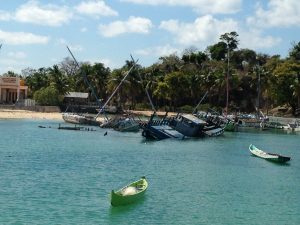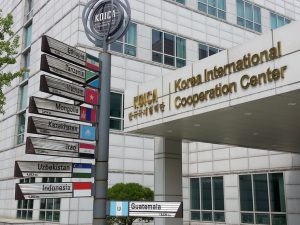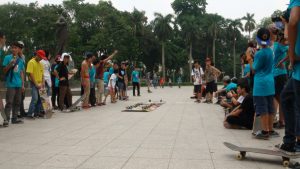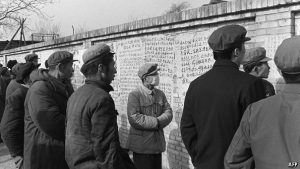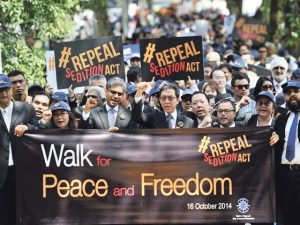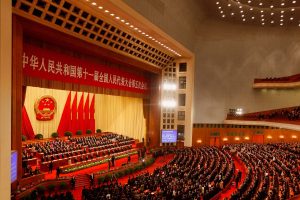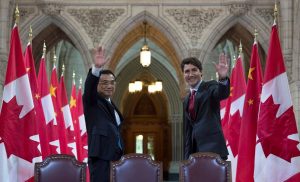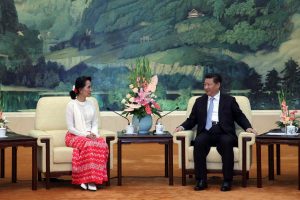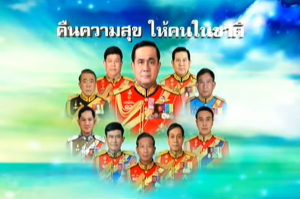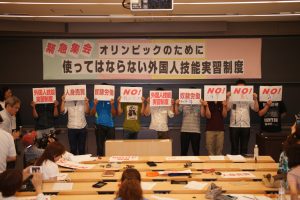A Tough Choice: the Criminalization of Indonesian Fishermen
Memo #387 By: Antje Missbach – antje.missbach [at] monash.edu The tough choice between illegal fishing and transporting asylum seekers Many Indonesian fishermen have suffered the consequences of breaking Australian law in recent years as they have tried to make a meagre living from traditional work. Because fishing in increasingly overfished seas provides inadequate income, many have tried […]
Why should we care about transnational social capital in development cooperation?
Memo #386 By: Rennie J. Moon – rennie.moon [at] yonsei.ac.kr and Gi-Wook Shin – gwshin [at] stanford.edu Higher education aid as transnational social capital Current approaches to higher education aid have focused either on developing human resources or on building social capital in the local context. For instance, donor countries offer various programs to train […]
Skateboarders, traceurs and changes in urban space and social practices in Hanoi
Memo #385 By: Stephanie Geertman – geertman.stephanie [at] gmail.com What can skateboarders and traceurs in Vietnam tell us about new forms of social practice? Skateboarders riding along the base of a statue of Vladimir Lenin in a public park and traceurs climbing and jumping over walls in the newest middle-class communities flanking the city have become […]
Democracy Wall, Foreign Correspondents, and Deng Xiaoping
Memo #384 By: Andrew Chubb – achubb [at] gmail.com The significance of Western media coverage of the Democracy Wall Movement in China for the present. Between November 1978 and April 1979, Chinese citizens took to putting up wall posters on the streets of various cities in China, airing Cultural Revolution grievances, and calling for the […]
Malaysia’s Bloodless Repression against Activists and Critics
Memo #383 By: Wei Lit Yew – wlyew2-c [at] my.cityu.edu.hk Where does Malaysia stand in the face of rising activism? 2013 marked the point at which the Barisan Nasional (National Front, BN) coalition government of Malaysia began constricting political space, after experiencing its worst electoral performance in its history. In 2015, the number of people investigated, charged, […]
Constructed Hierarchical Government Trust in China: Formation Mechanism and Political Effects
Memo #382 By: Zhenhua Su – suzh [at] zju.edu.cn, Yanyu Ye, Jingkai He and Waibin Huang – huangwb [at] zucc.edu.cn In a political system, trust is of great importance for both legitimacy and effectiveness. A government with low levels of political trust will be more likely to face difficulties in finding public support for and […]
Can Canada Follow New Zealand’s Model for Free Trade with China?
Memo #381 By: Charles Burton – cburton [at] brocku.ca and Stephen Noakes – s.noakes [at] auckland.ac.nz What explains the absence of a Canada-China free trade agreement? From China’s perspective the benefits of free trade with Canada are clear: increasing its market share in Canada, locking Canada in as a reliable supplier of the energy, mineral and agricultural resources necessary to sustain […]
A Pariah No More: How Over-reliance on China Spurred Myanmar’s Reforms
Memo #380 By: Jonathan T. Chow – jchow [at] umac.mo and Leif-Eric Easley – easley [at] post.harvard.edu How Over-reliance on China Spurred Myanmar’s Reforms In late 2010, Myanmar’s repressive military junta transformed itself into a nominally civilian government, over two decades after it had seized power. Upon becoming president in early 2011, former general Thein Sein unexpectedly launched wide-ranging […]
The Thai Military, Coups, and the False Hope of Professionalism
Memo #362 By Jacob I. Ricks – jacobricks [at] smu.edu.sg Thailand is one of the most coup-prone countries in the world, having experienced no less than 19 coup attempts since 1932. The prevalence of military interventions casts doubt on whether Thai politicians will ever be able to reign in their armed counterparts. One prominent response to this […]
Human rights for human resources – Japan debates and expands the controversial Technical Internship Training Program, once more
Memo #343 By: Daniel Kremers – kremers [at] dijtokyo.org Intense debate currently surrounds the Technical Internship Training Program (TITP), Japan’s major source for lesser skilled temporary migrant workers, just five years after the last major revision of immigration laws in 2010. The program consists of three years of employment in manual jobs in mostly small and medium […]
